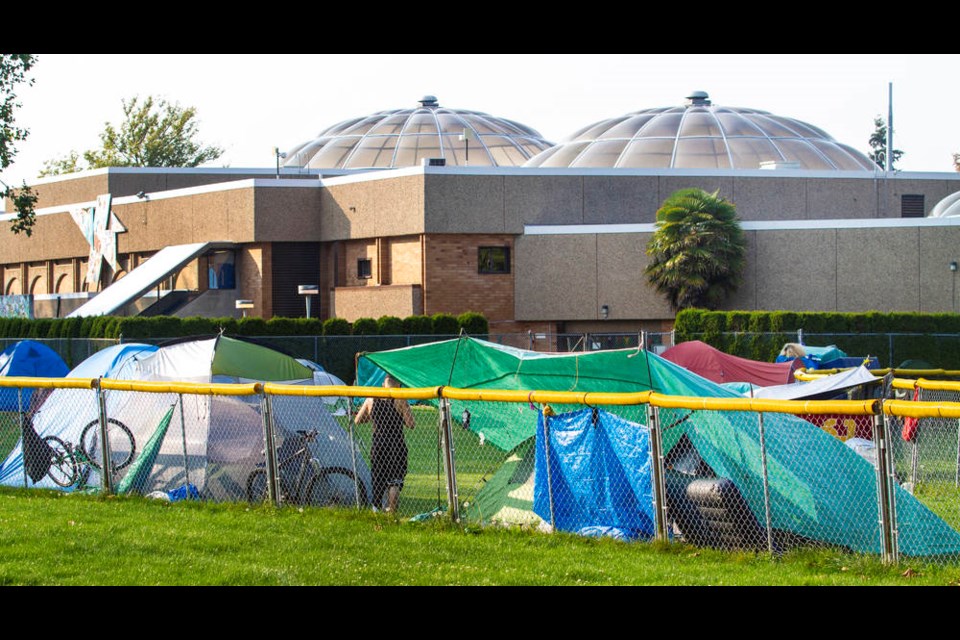Victoria Mayor Lisa Helps said Friday that new restrictions on camping in parks should lead to fewer tents in Central Park in the coming weeks, as people without homes move to smaller encampments across the city.
She said city staff have been working closely with a number of camp leaders to explain the changes and get the co-operation of people living at Central Park.
“The most effective way to get compliance is through voluntary measures,” she said.
The new rules restrict the size of tents to nine square metres and require them to be four metres apart, eight metres from playgrounds and 50 metres from school property.
The North Park Neighborhood Association, which keeps a daily tally of the tents in Central Park, counted 117 as of Friday.
It’s expected that the new rules will reduce that number to 21, but some residents have been frustrated by the lack of progress since council adopted the measures on Sept. 14.
Sarah Murray, the association’s executive director, said she understands that frustration, but appreciates the city’s efforts to reach out to the people living in the camps and include them in the planning. “That’s frustrating to a lot of people that it’s not moving quickly, but I also understand why it’s not moving quickly,” she said.
Sandy Fisher, one of the people living in Central Park, said he and others in the camp were given the opportunity to help develop a city brochure released this week. The handout explains the new camping rules, provides a list of services for people and includes a map showing other parks with washrooms and water fountains where sheltering is permitted.
Fisher said the “community is coming together” at Central Park and he expects people will take that model with them on a smaller scale as they move to other parks.
“We’ve gone from an us-and-them atmosphere with bylaw and city officials to a we’re-all-in-this-together attitude,” he said. “So I can’t see anything but positivity coming out of it.”
Helps said the process of moving people from one park to the next will take time because many of them are vulnerable.
“If they’re connected to some form of outreach team, if they’re trying to get on to the safer [drug] supply program, their outreach workers need to know where they’re moving to,” she said. “So this has to be done carefully.”
At the same time, Helps said the primary focus has to be on finding homes for people. “We don’t want to be managing encampments forever,” she said. “We want people moved inside.”
Helps said there have been a number of success stories on that front in recent days.
“Two people will be moving from the parks into the Therapeutic Recovery Community at Our Place,” she said. “This past week, there are three people that Island Health has identified from parks and moved inside. So it’s slow work, but the work is happening.”



